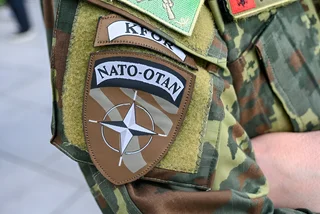Although the migration pact will not take effect until June 2026, the Czech Republic has already assessed what needs to be done domestically. This includes building new infrastructure, hiring more staff, and calculating costs.
All EU member states had to submit detailed plans to Brussels by the end of 2024 outlining their preparations for the migration pact. The Czech Ministry of the Interior, which called its document the Action Plan, has published it online.
"Most measures in this reform aim to tighten asylum practices. They are designed to prevent rejected asylum seekers from moving further inland. The goal is to ensure the Czech Republic does not become a target for illegal migration," said Interior Minister Vít Rakušan in a press statement.
The pact introduces mandatory border procedures for individuals unlikely to qualify for international protection or those who mislead authorities. Member states must also register asylum seekers and illegal migrants in the common Eurodac database. Aligning the Czech system with the European one will cost CZK 60 million, according to the Interior Ministry.
“As part of the reform, new and existing migration IT systems will need to be connected,” said ministry spokesperson Adam Rözler.
The plan includes increasing the number of border police officers by 50, which will cost CZK 12 million annually. Their equipment will require an additional CZK three million, and training will cost another two million. Vehicles and equipment designed for transporting children will cost CZK 20 million. Expanding the medical team is expected to add CZK 48 million to annual expenses.
Today, the Czech Republic has one of the lowest rates of asylum applications per capita in the European Union, with 1,397 applications filed in 2023. By comparison, Germany, which is eight times more populous, received over 350,000 applications in the same year—250 times more. The Czech Republic is also home to 389,000 Ukrainian refugees under a temporary protection regime, which must be renewed annually.
The Department of Asylum and Migration Policy will also see an increase in staff, adding CZK eight million to its yearly budget. A facility to train migration experts is projected to cost CZK 50 million. "We will use European Union funds as much as possible to implement these changes," Rözler said.
The migration pact includes a mechanism of mandatory solidarity. If a country refuses to accept redistributed refugees, it will have to contribute to a common financial fund. The pact does not force member states to accept refugees but does not allow for automatic exemptions, even for countries like the Czech Republic, which already host a large number of Ukrainian refugees.
To speed up asylum decisions, judicial capacity will need to be strengthened. In the Czech Republic, this will mean hiring one judge and four judicial staff, which will cost an additional CZK six million per year.
The Ministry of the Interior also plans to hire seven experts to advise migrants on returning to their home countries, at an annual cost of CZK seven million. According to the Action Plan, the most common return destinations in 2023 were Moldova, Uzbekistan, Georgia, Turkey, and Vietnam. However, the Czech Republic faced significant challenges in returning people to Nigeria, India, and Russia in 2024.












 Reading time: 2 minutes
Reading time: 2 minutes 



































